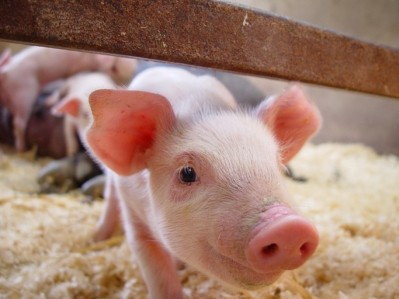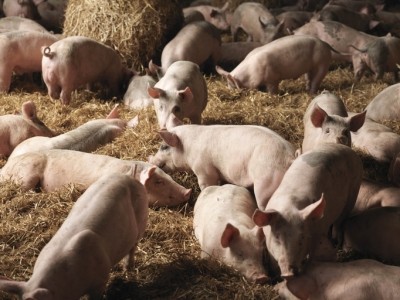Silage additives, amino acids, and binders in EFSA review line-up

Chr. Hansen’s application for renewal of two silage targeted additives, a product consisting of viable cells of L. lactis DSM 11037, and another, L. lactis NCIMB 30117, for use in forage for all animal species were reviewed positively by EFSA.
The Authority’s FEEDAP panel concluded that both additives remain safe for all animal species, consumer, and the environment under the authorized conditions of use.
L-lysine review
Kempex Holland is seeking a first time EU authorization for an additive consisting of L-lysine sulfate produced by E. coli CGMCC 7.398, when used as a feed additive for all animal species. Hence, EFSA was asked to deliver an opinion on the safety and efficacy of the product.
The evaluation was favorable. The FEEDAP panel found neither the production strain nor its recombinant DNA were detected in the final product. “The additive does not pose any safety concern associated with the production strain.”
EFSA said the additive is safe for the target species. “When using L-lysine sulfate, the background sulfur/sulfate content in the compound feed should be taken into account,” added the panel, however.
The additive would also pose no safety concerns for the consumer and for the environment. It is considered as an efficacious source of the essential amino acid L-lysine for non-ruminant animal species. “For the supplemental L-lysine to be as efficacious in ruminants as it is in non-ruminant species, it would require protection against degradation in the rumen,” said the panel.
Supplemental L-methionine
CJ Europe also received a positive opinion from the Parma-based risk assessor in terms of the safety and efficacy of the use l‐methionine ≥ 98.5% or ≥ 90% produced by the combined activities of C. glutamicum KCCM 80245 and E. coli KCCM 80246 as a nutritional additive for use in feed and water for drinking for all animal species.
L-Methionine produced by fermentation with C. glutamicum KCCM 80245 and E. coli KCCM 80246 has not been authorized previously as a feed additive in the EU.
The EFSA experts said viable cells of the production strains in question, and their recombinant DNA, were not detected in the products under assessment.
And the FEEDAP panel said both products are considered as an efficacious source of the essential amino acid L-methionine for non-ruminant animal species. Like in the L-lysine opinion, the EFSA team said for the supplemental L-methionine to be as efficacious in ruminants as in non-ruminant species, it would require protection against degradation in the rumen.
The panel did identify concerns about the use of amino acids in water for hygienic reasons, and due to the risk of imbalances when administered simultaneously via feed.
Evaluation of binder and anti-caking agent
Spanish companies, Sepiol SA and Tolsa SA, are seeking re-evaluation of the EU authorization of sepiolite, when used as a feed additive for all animal species. The product is approved as a binder, anti-caking agent and coagulant in the EU with a maximum content of 20,000 mg/kg feed.
Based on the data available covering a range of premixtures, feed materials and complete feeds, the FEEDAP panel concluded that the product is efficacious as a binder and anticaking agent. Rheological sepiolite is efficacious as a thickener of liquid feeds, it added.
The experts found the additive to be safe for dairy cows at the recommended use level. That conclusion, said the panel, can be extrapolated to other dairy ruminants. However, owing to the lack of sufficient data, the experts said they could not determine the safety of the product for the other target species/categories.
The additive, at the proposed conditions of use, is also considered safe for the consumers and the environment.
Reclassification of active agent
Following a request from the EU Commission, EFSA was asked to provide an evaluation of the safety and efficacy of Bacillus subtilis ATCC PTA-6737 (B. subtilis PB6) when used as a feed additive for turkeys for fattening, turkeys reared for breeding, laying hens, minor poultry species for laying, weaned piglets, weaned minor porcine species and sows.
The applicant, Kemin, was looking to change the name of the active agent B. subtilis in the existing authorizations to B. velezensis. The panel found the efficacy of the additive for the target species and its compatibility with coccidiostats would not be affected by the reclassification.
The assessors also confirmed their previous opinion that PB6 is safe for the target species, consumers, and the environment.








